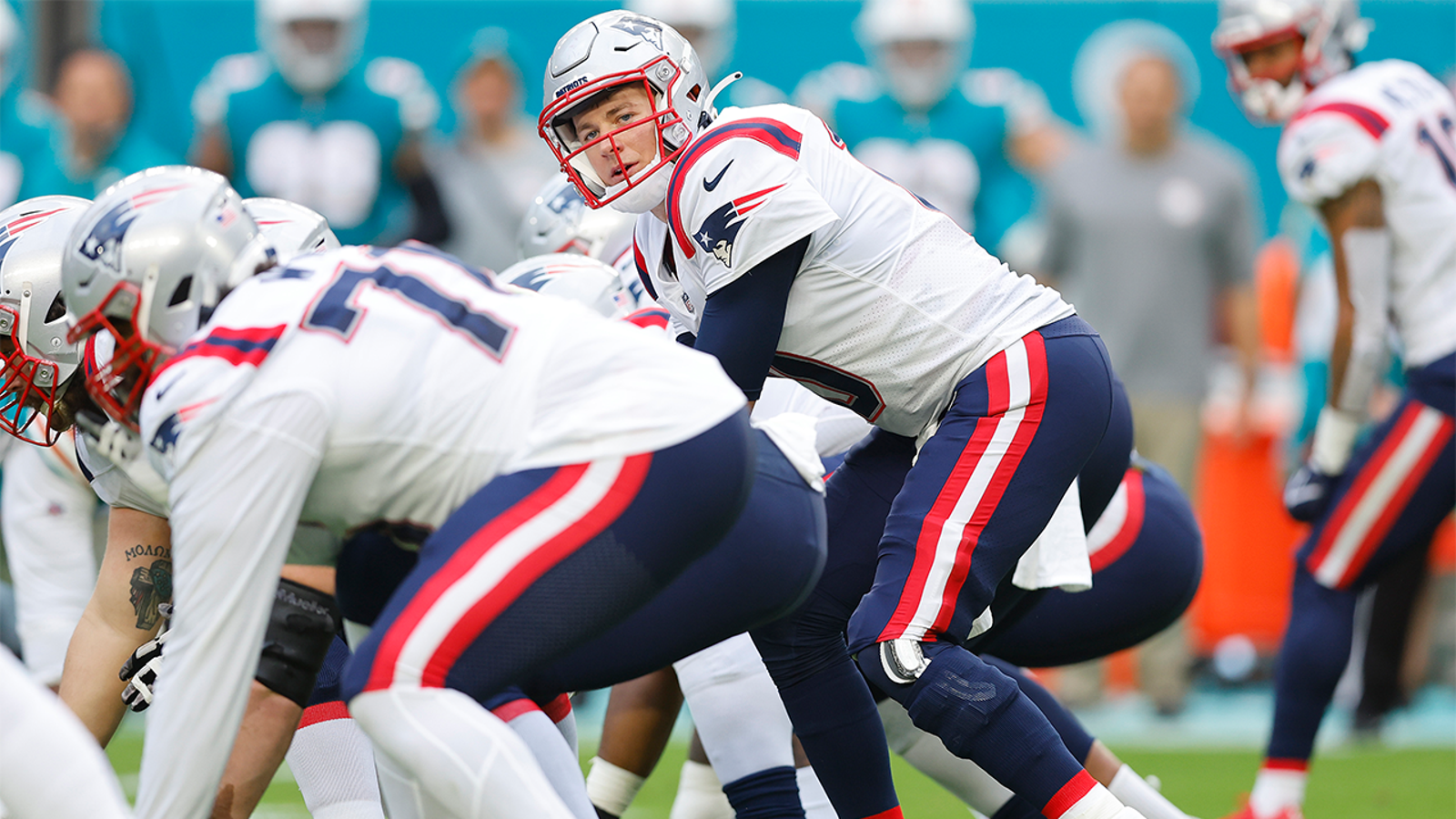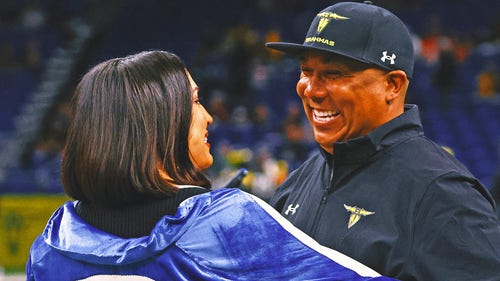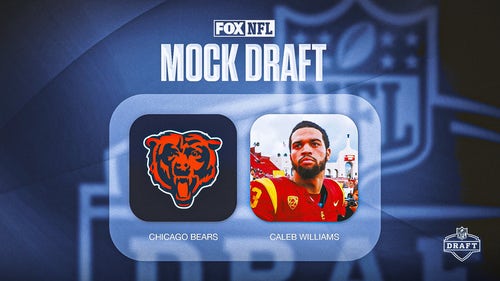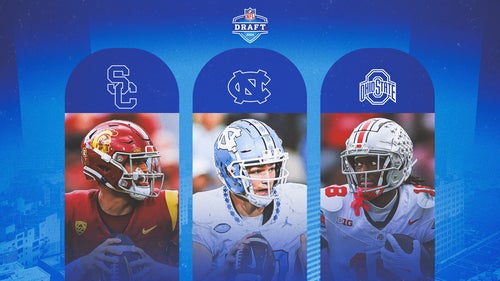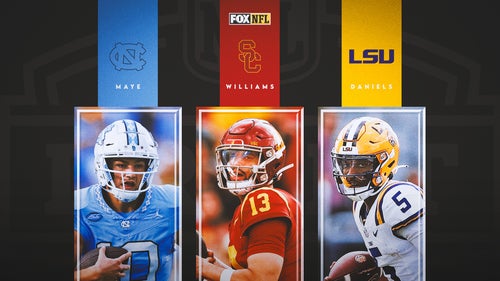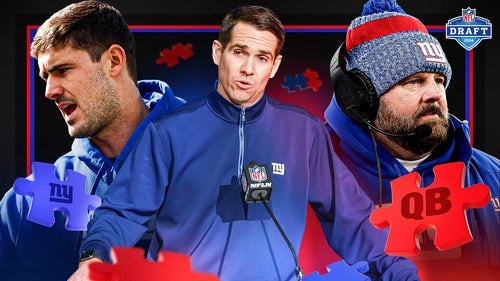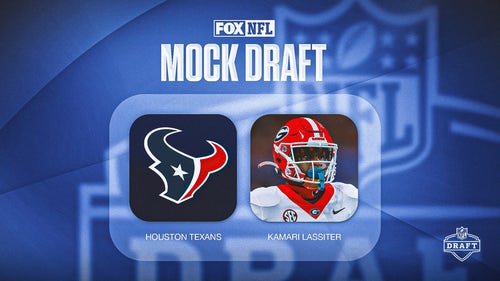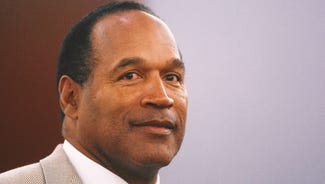
Every NFL playoff team's key weakness and how to mask it
By Bucky Brooks
FOX Sports NFL Analyst
The NFL playoffs routinely feature the best coaches leading the best teams into one of the most competitive single-elimination tournaments in pro sports.
To survive and advance, coaches must find a way to accentuate their strengths while minimizing their weaknesses. The clever scheming and planning often fly under the radar on game day. That's why this is the perfect time to evaluate each of the playoff teams to determine how they can work around their biggest weaknesses to make a run to Super Bowl LVI.
Liabilities for the AFC Playoff teams
Heading into Super Wild Card Weekend, here are the key areas of concern for each playoff squad.
Let's start with the AFC.
Weakness: Running back rushing attack
The Bills have functioned as a one-man show, with Josh Allen joining Randall Cunningham and Lamar Jackson as the only quarterbacks in NFL history with 30-plus touchdown passes and 700-plus rushing yards in a single season, per NFL Research. Despite the team’s success with Allen taking on such a heavy workload, the Bills need a more diversified attack to advance beyond the early rounds.
Running back Devin Singletary has started to take on more responsibility the past four games, with 19.0 carries per game after averaging just 8.6 in the first 13 games. Buffalo is the first team since 2008 to reach the playoffs while averaging fewer than 19.2 RB carries per game.
The Bills must put the ball in Singletary's hands to beef up their paltry average (18.4 RB CPG) and balance an offense that is overly reliant on the unique skills of the franchise quarterback.
Weakness: Mac Jones/passing game
Perhaps Jones is the exception to the rule, but rookie starting QBs are 2-8 in the playoffs since 2010. Jones' lack of experience could result in more miscues and mistakes from an offense that has struggled to score points of late. Errors could lead to costly turnovers in playoff games that are routinely decided by eight points or fewer.
The Patriots might reel Jones back to keep him from giving away the ball, which could lead to a heavy reliance on the running game. The aerial attack would feature an assortment of screens, quick passes and play-action throws from a variety of formations. If Jones can make just a handful of key plays each week, the Patriots are good enough to get it done behind the efforts of their defense and special-teams units.
Weakness: Secondary/pass coverage
The Raiders lack blue-chip personnel in the secondary, but they have found a way to succeed despite that talent gap. That is not a knock on or dismissal of players such as former Pro Bowlers Casey Hayward and Desmond Trufant, but the veterans are on the downside of their careers and playing with a cast of newcomers and misfits in the back end.
To offset their weaknesses, the Raiders play a lot of zone coverage with seven defenders dropping behind a four-man rush. With Maxx Crosby (82) and Yannick Ngakoue (71) ranking among the top five in QB pressures, per Next Gen Stats, the Raiders can diffuse explosive aerial attacks without exposing their defensive backs in coverage.
If the Raiders continue to produce the league’s best pressure rate (33.6%) while blitzing at the lowest rate in the NFL (14.4%), the lack of blue-chip talent in the secondary will not be an issue.
Weakness: Offensive line/pass protection
Despite Joe Burrow's emergence as one of the top quarterbacks in the game, the Bengals struggle to keep him upright in the pocket. Cincinnati's patchwork offensive line looks nothing like a dominant unit at the line of scrimmage, surrendering 55 sacks this season — third-most in the NFL.
To combat the constant pressure, Burrow picks apart defenses from spread and empty formations that enable him to identify and counteract potential pressures with an assortment of quick-rhythm throws. The Bengals’ quick-passing game mirrors the "catch, rock and fire" concepts that helped make the former No. 1 overall pick a legend at LSU.
Weakness: Defense
The Chiefs’ defense has steadily declined since the team's Super Bowl victory two years ago. The unit has given up more total yards per game and points per game in each of the past two seasons. The defense surrendered 29-plus points in each of the first five weeks of 2021 before leading the league in scoring defense from Week 6 to Week 14 (13.1 PPG). But the D struggled again at the end of the regular season, as evidenced by its 24.0 PPG allowed from Week 15 to Week 18.
Part of the fluctuation can be attributed to the inconsistent pass rush and coverage from the unit. Despite Chris Jones’ impact as a disruptive force with nine sacks and 17 QB hits, the frontline has failed to consistently disrupt the timing and rhythm of opponents’ passing games. That could change in the playoffs, with Melvin Ingram teaming with Frank Clark to secure the edges and Jones settled in at defensive tackle after starting the season at defensive end.
With three established rushers harassing the quarterback, the ball should come out more quickly — or opposing passers will take a beating at the hands of the three former Pro Bowlers.
Weakness: Ben Roethlisberger's arm strength/lack of vertical passing game
The two-time Super Bowl winner is the feel-good story of the postseason, but his lack of arm strength could derail the Steelers’ title hopes. Roethlisberger is averaging just 6.7 air yards per pass attempt, with the third-fastest average time to throw (2.38 seconds) in the Next Gen Stats era (since 2016).
Although the veteran’s preference for the quick-rhythm passing game enables the Steelers to work around their offensive line issues, the inability or unwillingness to push the ball down the field results in the team playing in a phone booth.
Offensive coordinator Matt Canada must find a creative way to generate more explosive plays while working around No. 7’s waning arm strength and lack of mobility in the pocket. Canada has a reputation for utilizing a wide variety of pre-snap shifts and motions to create big-play opportunities on the perimeter. The former college coach might want to tap into his old playbook and pull out a few tricks that result in Diontae Johnson or Chase Claypool streaking past defenders down the boundary.
If the Steelers can freshen a passing game that has grown stale with an aging QB at the helm, they might be able to put up more points than anticipated against the Chiefs.
Weakness: Pass defense
The Titans bullied their way to the top of the AFC with an old-school approach that relies on toughness and physicality. Despite their disciplined approach, however, the Titans have been vulnerable on pass defense when quarterbacks have been able to throw from clean pockets. The injuries to the secondary make it challenging for Mike Vrabel’s squad to consistently hold up in one-on-one coverage.
To combat those tactics, the Titans must be overly aggressive at the line of scrimmage while utilizing four-man pressures. By using some movement at the point of attack, the Titans can get Jeffery Simmons (8.5 sacks) and Harold Landry (12 sacks) loose on some pass-rush opportunities.
If the Titans' DBs are able to sit back in umbrella coverage while the line generates consistent pressure on the quarterback, it will be difficult for opponents to drive the ball the length of the field against a smart, opportunistic unit.
Now let's take a look at the NFC squads.
Weakness: Team defense
Despite facing a ton of injuries on the defensive side of the ball, the Packers have held up well due to solid tactics and execution. The surprising contributions of unheralded players such as LB De’Vondre Campbell and CB Rasul Douglas have helped mask the unit’s flaws, and those warts should clear up with a host of five-star players poised to return to the lineup in the playoffs.
Za’Darius Smith and Jaire Alexander will fortify the Packers’ pass defense by adding a premier rusher to the frontline and a Pro Bowl-caliber playmaker in the secondary to tighten up the coverage on the perimeter. If those veterans play close to their established levels, the Packers’ defense has a chance to improve from good to great in the postseason.
Weakness: Balanced offense
Kliff Kingsbury’s reputation as an offensive wizard was built on his creativity in the passing game. The Cardinals have rolled over opponents when they have been able to unleash their Air Raid-like schemes, with Kyler Murray throwing the ball all over the yard.
While that style of play is effective in the regular season, the Cardinals will need more balance to close out games in the playoffs. James Conner and Chase Edmonds must become bigger parts of the game plan, with the team incorporating more smash-mouth running plays to control the clock and impose its will on opponents.
In addition, using the running backs in the passing game should offset some of the production that could be lost if Deandre Hopkins fails to return to action.
Conner led the league in scrimmage touchdowns (18), and Edmonds found his groove down the stretch, so the Cardinals could lean on their dynamic one-two punch to carve up opponents with a steady diet of screens, swings and option routes to diversify an offense in need of a tuneup.
Concerns for NFC playoff teams
Weakness: Matthew Stafford’s turnovers
The Rams mortgaged their future to add the all-star quarterback to the lineup this season. The experiment has worked so far, as Stafford tossed 41 touchdowns and led the Rams to a division title. But a recent spate of turnovers has led to concerns about his ability to play winning football in the tournament. With four pick-sixes this season, the veteran has lit up the scoreboard for both the Rams and their opponents.
Sean McVay must fix this problem by urging his quarterback to play with more patience and discipline, particularly against four-man rushes and max coverage. Considering that 16 of Stafford’s league-high 17 interceptions came against four-man rushes, the veteran needs to take the open check-downs and underneath routes instead of big-play hunting down the field.
If No. 9 simply manages the game and takes what the defense is conceding, the Rams can methodically march up and down the field against anyone in the playoffs.
Weakness: Run defense
The Cowboys’ opportunistic defense, featuring a collection of ball-hawking defenders, has mastered the art of taking the ball away. While winning the turnover battle is the biggest factor in winning games, particularly in the playoffs, the main concern about the Dallas defense is its inability to stop the run. Opponents intent on neutralizing the Cowboys’ speed, quickness and explosiveness will attempt to run right at the defense with an assortment of power runs that test the unit’s physicality, toughness and discipline.
To combat opponents' run-heavy tactics, defensive coordinator Dan Quinn could turn up the pressure on early downs to blow up the running game. Leighton Vander Esch, Randy Gregory and Micah Parsons must be active at the point of attack as disciplined gap defenders. The combination of organized movement and overpowering explosiveness enables the Cowboys to stymie opponents at the point of attack.
If the Cowboys can consistently win on first down, the ball hawks will feast on quarterbacks forced to throw in long-yardage situations.
Weakness: Jimmy Garoppolo’s turnovers
The Kyle Shanahan-Jimmy Garoppolo marriage has led to a bunch of wins in the Bay Area, but the quarterback’s inconsistency and turnover woes could prevent the 49ers from adding another Lombardi Trophy to the trophy case. Given how the veteran QB’s giveaways directly correlate to the 49ers’ bottom line (four giveaways in nine wins; 11 giveaways in six losses), Shanahan needs Garoppolo to curb his mistakes for the team to advance.
To reduce Garoppolo’s turnover issues, the 49ers will limit his opportunities as a passer and rely on a more conservative approach to win in the playoffs. Based on the QB's numbers in three career playoff games (63.8% completion rate, 142.3 pass YPG, 7.4 pass YPA, 2-3 TD-INT ratio, 75.9 passer rating), the 49ers have been able to win with a "less is more" strategy.
Perhaps the Niners' tactics will be more effective in this year’s tournament, with the team leaning on Deebo Samuel, George Kittle, Brandon Aiyuk and Kyle Juszczyk as catch-and-run specialists.
If the 49ers can incorporate the RPO game against defenses loaded up to stop the run, Jimmy G might be able to move the chains without putting the ball in harm’s way.
Weakness: Jalen Hurts’ passing skills
The Eagles’ surprising playoff run has been fueled by the emergence of Hurts as a dynamic playmaker. Despite being regarded as a subpar passer (61.3% completion rate, 86.2 passer rating), Hurts has torched opponents as a dual-threat QB with big-play potential on the perimeter.
While opponents will attempt to make the second-year pro a traditional passer from the pocket, the Eagles’ creative schemes and Hurts’ running skills will make it difficult for defensive coordinators to control the game. The 6-foot-1, 220-pound playmaker leads all quarterbacks in rushing attempts, rush yards and rush touchdowns, and he is just the second QB in NFL history with 750-plus rush yards and 10 rushing TDs in a single season.
As the leader of the NFL’s No. 1 rushing attack (159.7 rush YPG), Hurts might not need to become a more efficient passer, especially with opponents putting eight or more defenders near the line of scrimmage. If he can complete a handful of passes on RPOs or play-action, the Eagles can win with the one-dimensional approach that keyed their late surge into the playoffs.
Weakness: Decimated WR corps
After lighting up scoreboards utilizing four former Pro Bowlers in spread formations, the Buccaneers will need to tweak their approach with Chris Godwin on the sideline and Antonio Brown cut from the team. Although Mike Evans and Rob Gronkowski are steady producers and share an unbreakable bond with Tom Brady, the Bucs will need a few unheralded receivers to step up when opponents take away options No. 1 and No. 2 in the passing game.
That puts the onus on Scotty Miller, Cyril Grayson and Breshad Perriman to make enough plays to keep the chains moving. With Brady excelling as a quick-rhythm passer — 2.50 seconds to throw on average, 27 quick-pass touchdowns (0-9 air yards) — the Buccaneers can spread the field and create favorable matchups for the no-name crew on the perimeter.
Considering how Miller, Grayson and Perriman have enjoyed brief moments in the sun, Tampa Bay's offense can survive without a few headliners on the marquee.
Bucky Brooks is an NFL analyst for FOX Sports and regularly appears on "Speak For Yourself." He also breaks down the game for NFL Network and is a cohost of the "Moving the Sticks" podcast.






































































































































